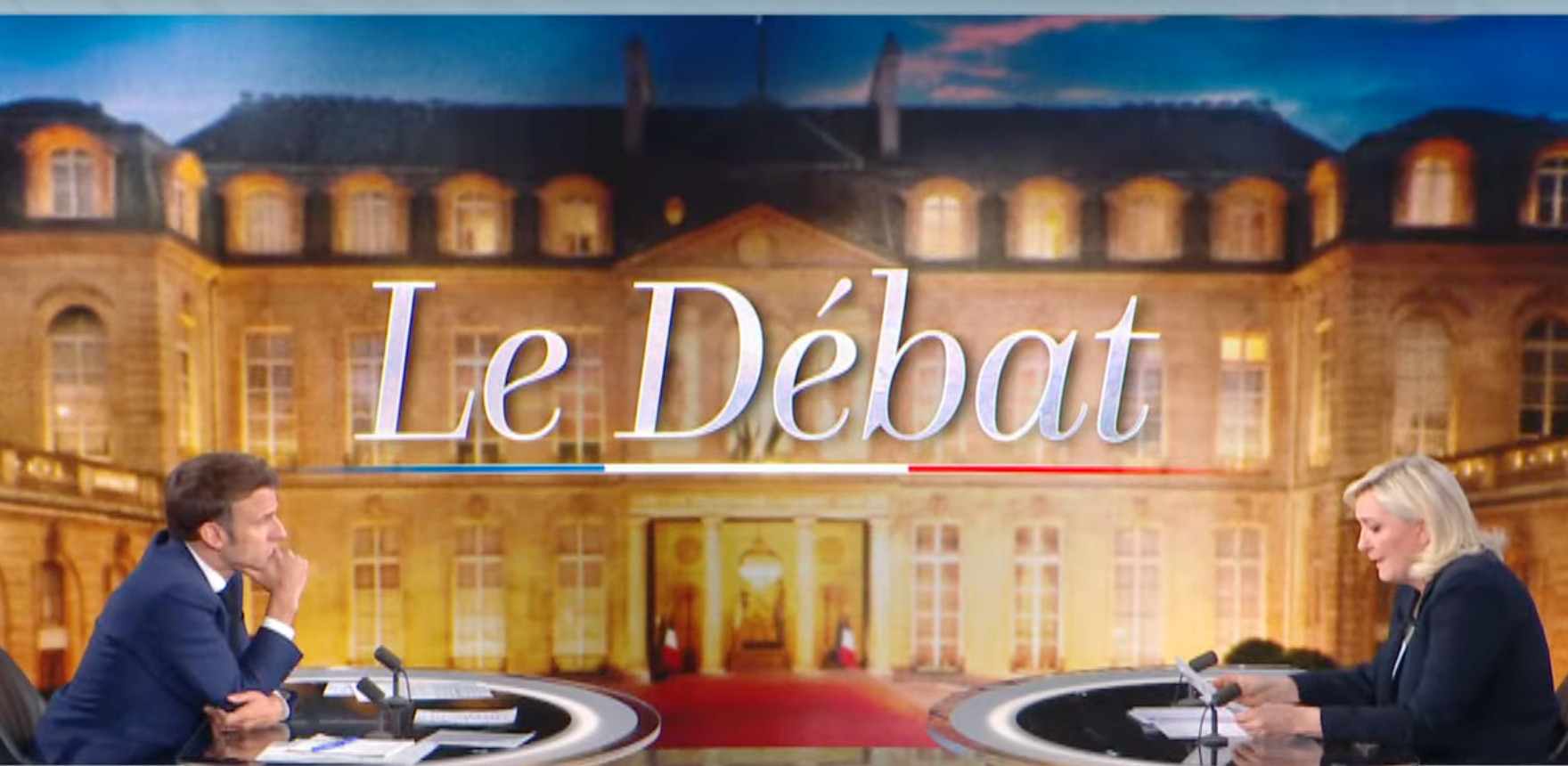During their one and only televised debate before the upcoming French Presidential elections, Emmanuel Macron and Marine Le Pen went toe to toe on almost every topic including Russia, the economy, immigration and climate change.
With just three days to go before the second round of the presidential elections in France, the two contenders took to the television screens to make their positions loud and clear. Unsurprisingly, they butted heads on nearly every topic.
Macron, trying not to look arrogant, and Le Pen, trying to appear more moderate, clashed on subjects ranging from healthcare, pensions, Covid, Europe, immigration, taxes, the environment, cost of living woes and the war in Ukraine.
The two-and-a-half-hour spectacle saw Macron pulling no punches, accusing Le Pen of being in Russia’s back pocket, repeatedly going back to the loan her party took from a Czech-Russian bank back in 2014.
“You are dependent on the Russian government and you are dependent on Mr Putin,” he said. “When you speak to Russia you are speaking to your banker.”
Le Pen countered that she is “an absolutely and totally free woman” and that she had only taken those loans because banks in France had refused.
Le Pen, for her part, was ready for the attacks and did not make the same mistakes of the 2017 debate when she came across as flustered and unprepared. She was clearly playing offense this time around, leaving Macron scrambling for footing, interrupting her continuously.
One hot potato the two candidates got heated over were salaries, notably when Macron scoffed at Le Pen’s suggestion that she would increase wages by 10%.
“The president doesn’t decide salaries, that’s down to employers,” Macron said. “You are trying to make people believe you will increase salaries by 10% and it’s not true.”
“And you are trying to make people believe you will increase bonuses,” Le Pen batted back.
Le Pen also said 70% of French people thought their standard of living had decreased since Macron has been in office and that she strove to be a president of domestic peace and national unity. “We must protect our social model, prioritise localism over globalisation, and give French nationals precedence in our own country,” she said.
Macron defended himself, saying France had known unprecedented crisis, first with the pandemic followed by war in Ukraine. He said he has led France through those challenges and planned to make France a stronger country. He stated that the vote on Sunday was a “referendum on Europe, on secularism, and a moment of clear choice”.
The environment was another topic showing the two as polar opposites. Macron called Le Pen a “climate sceptic” and she called him a “climate hypocrite.”
There were also several moments of great drama, with expressive facial gestures, looks of shock and scepticism and various poses indicating that the opponent was way off base in their thinking. Le Pen, who is not the experienced debater that Macron is, relied on expressive soundbites as transitionals in order to switch topics, whilst Macron laboured to bat down her “incoherent” proposals with facts without sounding like a know-it-all.
Despite a vastly stronger performance than 2017 from Le Pen, a poll carried out by pollsters Elabe suggested that 59% of those asked declared Macron to be the winner.
The sitting president came out on top as more presidential, 53% to 29%, but half of viewers also said he had come across as arrogant, overexplaining political points as if he were a headmaster talking to a remedial class. Challenger Le Pen was thought to be more in tune with the public, edging out Macron 37% to 34%, but 50% of those polled also found her politics to be “worrying”.
The face-off was moderated by respected French journalists, and each candidate had equal time to answer questions. The debate has been a major event in French presidential elections since it was first introduced in 1974. Only once, in 2002, did a candidate refuse a debate. This was when Jacques Chirac refused to debate his second-round rival, the far-right leader and father of current candidate Jean-Marie Le Pen, saying to do so would legitimise Le Pen’s extreme views.
